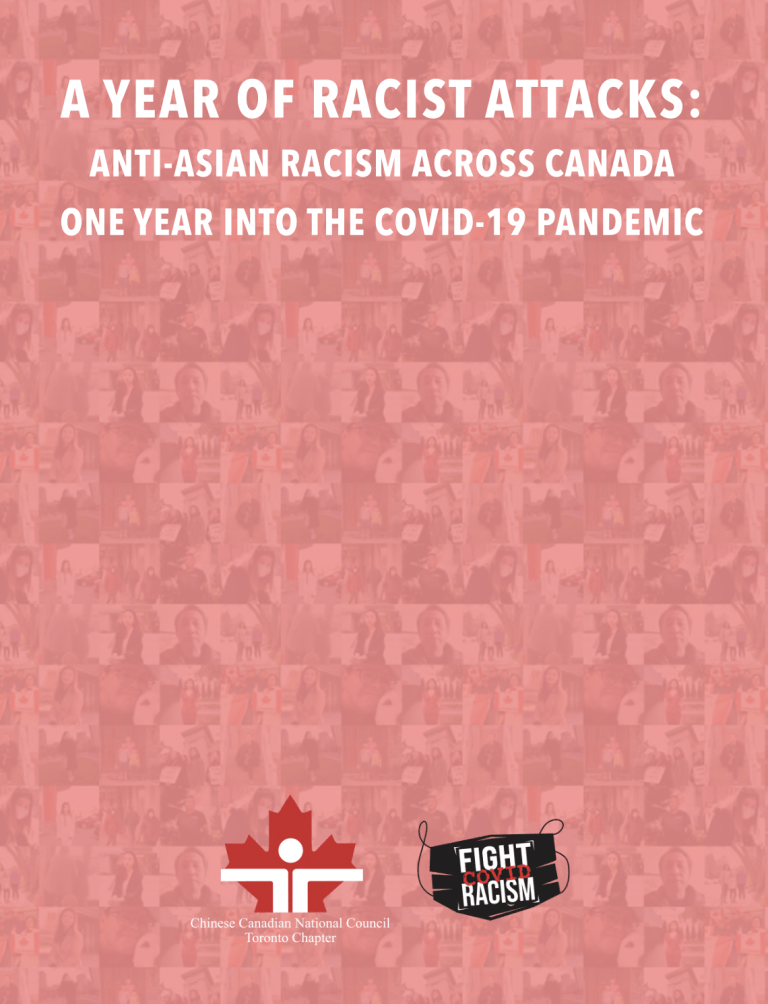Search the Baseline Project
To search the recommendations database, please visit the database main page.
To search the recommendations database, please visit the database main page.

“A Year of Racist Attacks: Anti-Asian Racism Across Canada One Year into the COVID-19 Pandemic,” published by the Chinese Canadian National Council for Social Justice, addresses the prevalence of Anti-Asian racist attacks based on data gathered from Mar. 10, 2020 to Dec. 31, 2020. The report recommends anti-racist community education, attention to intersectionality and upholding the rights of Asian-Canadian frontline workers.